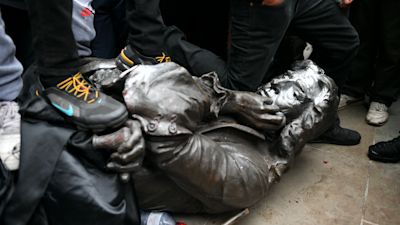Jamaica planning to seek billions from UK as compensation for slave trade

Jamaica is planning to seek billions of pounds in compensation from Britain for the role the former colony played in the trans-Atlantic slave trade.
During the height of the slave trade in the 17th and 18th centuries, the island of Jamaica was key to the Spanish and then British involvement in the transport of slaves from Africa to toil away in plantations across the Caribbean.
The National Library of Jamaica estimates around 600,000 African slaves were shipped to the island.
Olivia Grange, Minister of Sports, Youth and Culture, said: "We are hoping for reparatory justice in all forms that one would expect if they are to really ensure that we get justice from injustices to repair the damages that our ancestors experienced."Our African ancestors were forcibly removed from their home and suffered unparalleled atrocities in Africa to carry out forced labour to the benefit of the British Empire."
She added: "Redress is well overdue."
Her comments came as a petition was brought to the Jamaican government by lawmaker Mike Henry that requested £7.6 billion in compensation from the UK.
Mr Henry claims the sum is equivalent to the amount paid to the former slave holders for their losses after slavery was abolished in 1834.
Very little support was given to the former slaves.
"I am asking for the same amount of money to be paid to the slaves that was paid to the slave owners," Mr Henry said, a member of the ruling Jamaica Labour Party.
"I am doing this because I have fought against this all my life, against chattel slavery which has dehumanised human life."
The petition, with approval from Jamaica's National Council on Reparations, will be filed pending advice from the attorney general and three legal teams, Ms Grange said, although she denied to say how much the official request will ask for.
The country is still part of the Commonwealth and the Queen is head of state there.
The topic of the UK's involvement in the slave trade has become more prevalent in society in recent years.
After the downing of the statue of Edward Colston - who was heavily involved in the Bristol slave trade - there have been calls to take down more monuments dedicated to people who were in some way responsible for the enslavement of other human beings.